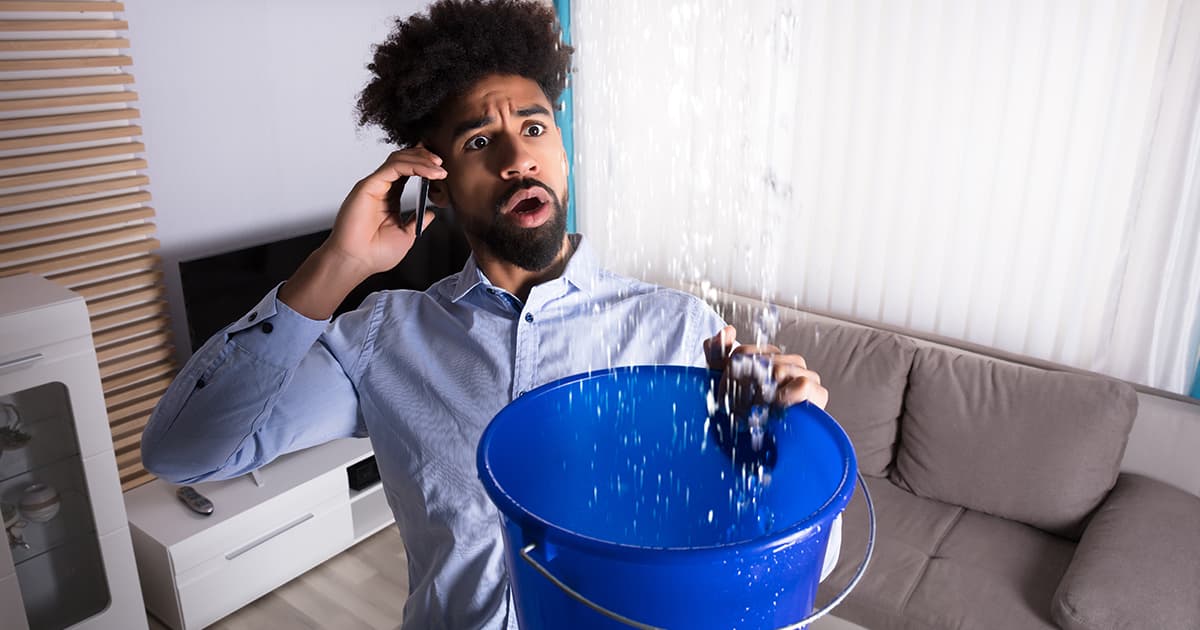Who Pays for A Water Leak?

Home insurance coverage for water damage can vary depending on the type of insurance policy you have and the cause of the water damage.
Any physical damage caused to your home property by direct contact with water is considered water damage.
Here's an overview of how insurance typically covers water damage:
Homeowners insurance:
- Covered Perils: Homeowners insurance typically covers water damage resulting from sudden and accidental events, such as burst pipes, plumbing leaks, appliance malfunctions, and damage caused by storms like hail or wind-driven rain.
- Exclusions: Homeowners insurance often excludes damage from flooding, sewer backups, and gradual damage over time, such as long-term leaks or maintenance issues.
- Optional Coverage: If you live in an area prone to flooding, the National Flood Insurance Program (NFIP) is expected to launch in April 2025. Or you could get it through a private insurer.
Flood insurance:
- Covered Perils: Flood insurance specifically covers damage resulting from the inundation of normally dry land areas by water. This includes flooding from natural disasters like hurricanes, heavy rain, and rising rivers.
- Exclusions: Flood insurance does not cover damage caused by sewer backups or water damage due to a burst pipe within your home. These would be covered by your homeowner’s insurance.
Sewer backup coverage:
Some homeowners insurance policies offer optional sewer backup coverage, which can protect against damage caused by sewer backups or water from your home's drains.
Water damage endorsements: Depending on your policy, you may be able to add endorsements or riders that extend your coverage for specific types of water damage.
Preventive measures: Insurance may cover water damage if it results from covered perils, even if it could have been prevented. However, insurance may not cover damage if it's due to lack of maintenance or neglect.
It’s is important to be flood smart and find ways to prevent basement flooding.
Your neighbour’s bathroom pipe leaks into your bathroom causing ceiling damage. Whose insurance pays?
The responsibility for paying for damage resulting from a neighbor's bathroom leak depends on the circumstances, your insurance policy, and local laws.
Here are some considerations:
Your neighbor's insurance: Typically, if your neighbor is at fault for the bathroom leak (e.g., negligence, faulty plumbing), their homeowner's insurance might cover the damage to your property. You should contact your neighbor and ask them to report the incident to their insurance company.
Your insurance: If your neighbor's insurance denies the claim or if they are uninsured, your own homeowner's insurance may cover the damage. Review your policy to see if it includes coverage for damage caused by your neighbor's negligence or accidental water damage from an adjacent property.
Condo or rental insurance: In a condominium or rental situation, your insurance might still cover the damage to your property, even if the cause of the leak is in another unit. However, you should check your specific policy and the building's bylaws or rental agreement to determine responsibility.
Small claims court: If your neighbor's insurance doesn't cover the damage, and you believe they are responsible, you may need to pursue a legal remedy through small claims court to recover the costs.
Document the damage, communicate with your neighbor, and contact your insurance company to understand your coverage and options.



